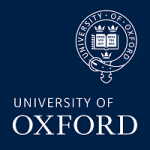项目介绍
About the course
The four-year DPhil in Neuroscience (1+3) has an outstanding record of achievement in terms of the publications and future careers of the students who have graduated to date. The programme is highly regarded internationally and many of its alumni are now leading neuroscientists.
The programme takes an integrated approach to neuroscience and provides a wide range of skills training in experimental and theoretical methods that is intended to enable you to ask questions and tackle problems that transcend the traditional disciplines from which this field has evolved.
Course structure
The first year follows the taught MSc in Neuroscience course, during which you will undertake two extended research projects from a choice of over one hundred offered annually by the extensive neuroscience research community in Oxford. You will also attend the graduate programme lecture series, which provides a broad education covering molecular, cellular, systems, computational and cognitive neuroscience.
After successful completion of the MSc, students continue with a three-year doctoral research project (DPhil). Toward the end of the MSc year, you will decide which laboratories and supervisor(s) you wish to work with and prepare a proposal for your three-year doctoral research project. This project can take place in any area of neuroscience within the Oxford network of laboratories and approved supervisors.
Year one
During your first year, you will join those students taking the stand-alone MSc in Neuroscience. Having a larger cohort of students enhances and expands the training opportunities available, helping you to make a more informed decision about the topic and design of your doctoral research project.
The MSc year begins in late September and is divided into three terms. The first term provides an introduction to neuroscience and research methods, while the second and third terms combine advanced taught courses, essay writing and two laboratory rotations (research projects).
Each of the MSc research projects lasts for about 16 weeks and is selected from a very extensive list of approved abstracts. With over 100 abstracts submitted each year, there is always plenty of choice, but if you are interested in a particular lab or research topic then you are welcome to discuss a potential project independently with an appropriate supervisor. Many of these projects lead to publications.
Years two to four
Early in May of the first year, you will meet with the course director and course lecturer to discuss the process for selecting your DPhil project. It is recommended that you talk to several potential supervisors and, in many cases, collaborative projects are proposed.
You may opt to continue one of the MSc lab rotations as your DPhil project, or combine the subject areas or methods encountered during both MSc lab rotations as a collaborative DPhil project, whereas others choose a research area that they have not previously tried out during the MSc year.
You will begin the DPhil in October of the second year. At this point, you will become integrated within your chosen department(s) and follow the same progression as other research students who work there.
Supervision
The allocation of graduate supervision for this course is the responsibility of the Medical Sciences Division and it is not always possible to accommodate the preferences of incoming graduate students to work with a particular member of staff. Under exceptional circumstances a supervisor may be found outside the Medical Sciences Division.
Assessment
In the first year, each of the MSc projects are written up as 10,000-word dissertations. The course concludes the following September with an oral examination.
In the second year, you are initially accepted as Probationary Research Students (PRS) and transfer to full DPhil status by the end of the fourth term. This involves the preparation of a transfer report and an interview to discuss the research you have carried out so far and your future plans with two independent scientists who have relevant expertise.
During the final years of the course you will write a 50,000 word thesis which you will need to defend orally (viva voce).
Graduate destinations
This course has been running since 1996 and more than 100 students have now successfully graduated. It was previously known as the Doctoral Training Programme in Neuroscience (1+3).
Over 75% of the programme’s graduates remained in academia as post-doctoral research scientists, either securing prestigious personal fellowships or positions on a grant, and most of the others secured positions in science communication, science administration or went into medicine. Only 5% opted to leave science altogether.
Changes to this course and your supervision
The University will seek to deliver this course in accordance with the description set out in this course page. However, there may be situations in which it is desirable or necessary for the University to make changes in course provision, either before or after registration. The safety of students, staff and visitors is paramount and major changes to delivery or services may have to be made in circumstances of a pandemic (including Covid-19), epidemic or local health emergency. In addition, in certain circumstances, for example due to visa difficulties or because the health needs of students cannot be met, it may be necessary to make adjustments to course requirements for international study.
Where possible your academic supervisor will not change for the duration of your course. However, it may be necessary to assign a new academic supervisor during the course of study or before registration for reasons which might include illness, sabbatical leave, parental leave or change in employment.
For further information please see our page on changes to courses and the provisions of the student contract regarding changes to courses.
录取要求
-
a first-class or strong upper second-class undergraduate degree with honours in any scientific discipline.
-
The department encourages applicants with a physical sciences background, as well as those who have studied a biological subject, such as psychology, biochemistry or neuroscience, at undergraduate level.
联系方式
电话: +44 1865 270000相关项目推荐
KD博士实时收录全球顶尖院校的博士项目,总有一个项目等着你!






